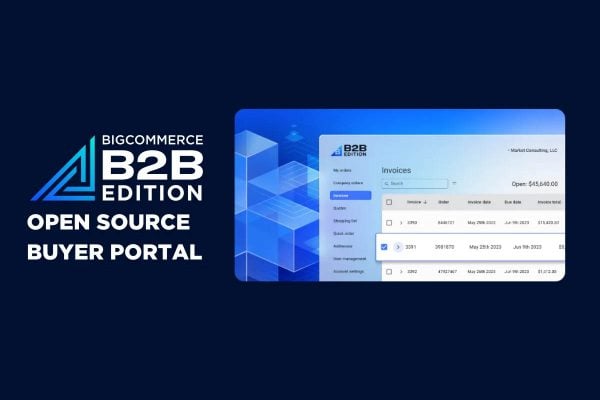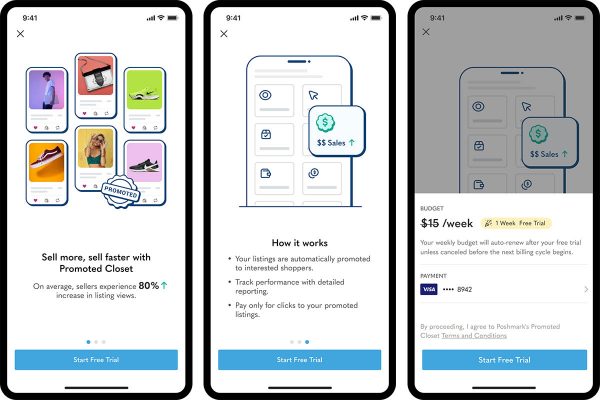What should we expect from retail in 2024? Today Mark Adams Senior Vice President and General Manager, EMEA, at BigCommerce, sets out his expectations for what will undoubtedly be a challenging start to the year and how retailers can navigate a path to profitability.
The ecommerce industry is always changing and this past year has been no different. The retail landscape continues to evolve, adapting to new technology and changing with consumer behaviour as global economic impacts, such as the cost of living and inflation, continue to bite.
The market is expected to face tough challenges as we enter 2024, with rising costs weighing on shoppers’ confidence and affecting consumer demand. But as retailers continue to strive to retain and grow market share whilst remaining profitable, we are seeing trends emerge across the commerce landscape which will have significant effects on retail over the next 12 months.
The importance of an omnichannel strategy remains prominent, with other key trends rising as more retailers adopt technological advancements. But as the market has taught us this year, things can move quickly, and flexibility and timeliness is absolutely key, as investment in digital channels can make the difference between being highly profitable or getting left behind.
Generative AI: Reshaping the Online Experience
Gen AI is definitely here to stay – anything that improves efficiency, reduces operating costs or drives incremental improvements in conversion will stick but like all new technologies will take time to become adopted by the mainstream. We’ve only begun to scratch the surface of Gen AI’s capabilities in ecommerce but there are already clear opportunities where AI will improve the individuals’ shopping experience by leveraging data to improve personalisation and customer service to provide services similar to what a consumer expects when they interact with their real life salesperson – for example by supercharging search by increasing context to answering questions and guiding consumers in both pre and post sale scenarios. Brands that are able to harness the power of Gen AI will find competitive advantage as a result of improving the shopper experience, driving incremental sales, improving efficiency and reducing operating costs.
B2B Ecommerce Evolution: The Digital Manifesto of Efficiency
In 2024 the B2B landscape will be heavily digitally influenced utilisting data-driven practices to hone business efficiency. This is another area in the commerce chain that will benefit from the implementation of AI through its ability to expedite operational protocols through automation. Within this digital expanse, ecommerce emerges as the central axis of the B2B buying journey, offering a unified platform for interactions. AI will be able to support this journey with a range of applications from personalisation to pricing optimisation, industry management and fraud prevention. Whilst AI enhanced chatbots and virtual assistants will be ready to offer consumers support throughout their commerce journey.
Future-Proofing the Tech Stack: Embracing Flexibility Amidst Uncertainty
Amidst the cloud of market uncertainties, cost-consciousness is one of the driving forces for tech investments. Composability, offers organisations the flexibility to tailor and adapt tech stacks as per the evolving needs of the hour, empowering brands to future-proof themselves.
Additionally we are seeing MACH Alliance principles gain ground, shaping composable commerce, across both B2B and B2C ecommerce looking to address inefficiencies. Brands will focus more on customer experiences and personalisation as well as order management and fulfilment meaning they will need to be empowered to respond faster to shifting customer behaviours and market changes. As a result technology vendors that enable, optimise and leverage genuine pre integration to serve the customer with a faster to market, lower cost solution to their legacy technology stacks will prevail.
Omnichannel Strategy: Weaving Digital and Physical Realms
Consumers are increasingly returning to physical stores post-pandemic, revealing a resurgence in the desire for engaging in-store experiences. This heralds the era of hybrid retail, where omnichannel strategies reign supreme. Retailers must learn to adapt to this new environment and to create experiences online that compliment what customers will experience in store and vice versa. AI will be essential in curating these experiences through the enhanced personalisation elements that it is able to provide consumers. These experiences will additionally be backed up with strong data optimisation across channels.
Discounting and Promotions: The Sway of Consumer Loyalty
The allure of discounts has historically been a sure-fire way to generate consumer loyalty, yet the race toward short-term gains through relentless discounting may bear long-term repercussions, especially for luxury brands. Seeing respected brands sacrificing reputation for fleeting financial victories is an unsustainable trade. Instead, a shift beckons, steering toward customer-centric loyalty approaches. Strategies that pivot to enhanced returns or longevity-based rewards will emerge as a potential new focus for brands to generate consumer loyalty. Further, luxury brands, navigating the consumer loyalty struggle in this financially troubled period may consider optimising their business and technology capability to expand geographically into fast growing markets and we can expect more consolidation with Mergers and Acquisitions as opportunistic groups pick off the struggling brands that have lost their way.
Payments: The Importance of a Friction Free Checkout
As consumers continue to demand efficiency, two important areas for payments will continue momentum: one-click checkout solutions and user experience improvement in checkout. Brands and retailers are noticing the conversion rate uplift from one-click checkout solutions and we expect to see more merchants following suit to focus on adding one-click in 2024. The other theme is user experience in checkout. Studies show that any friction in checkout such as asking customers to choose their card type or forcing customers to type out an address instead of using an auto-fill tool can lead to cart abandonment. With many retailers facing an expected slowdown in consumer spending, they cannot afford to lose sales due to a clunky online checkout experience for consumers.
Buy now, pay later will continue to grow at a strong rate in 2024 as consumers seek flexible payment options, but we’ll also see more regulation to avoid abuse, such as the UK the Financial Conduct Authority (FCA) clarifying contract language for the benefit of consumers.
Preparing for Disruptions: The Armor of Adaptability
In these challenging economic times businesses must brace for disruptions, pivoting swiftly amidst economic shifts and technological opportunities. The agility of a business and its ability to adapt to these changing trends will have a direct impact on its resilience over the next 12 months.
In summary, 2024 signifies a move towards more holistic customer experiences blending technology with a focus on long-term brand reputation. Adaptability emerges as the key priority for businesses over the next year, guiding enterprises through uncertainty towards sustainable growth.









